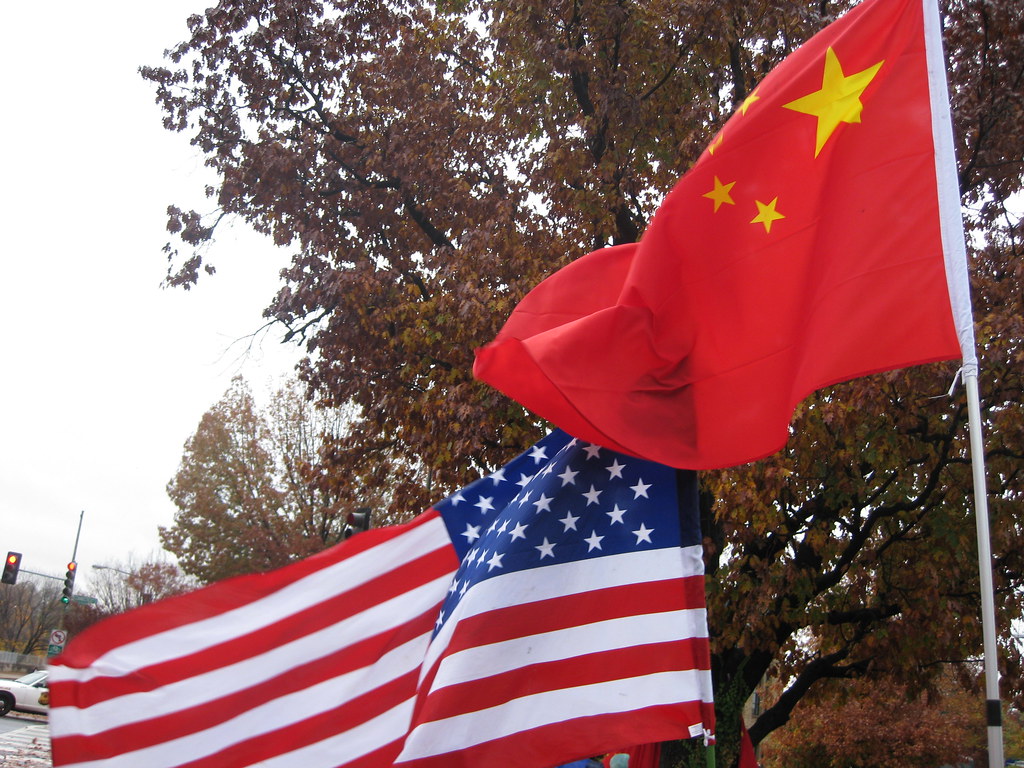China’s military officials criticize US Defense Secretary’s speech at Asian Security Summit, rejecting accusations of unwillingness to engage in crisis management.
US Secretary of Defense Lloyd Austin emphasizes at Asian Security Summit that ‘conflict is not imminent or inevitable’ and emphasizes the vital importance of communication channels with China.
Chinese military officials responded strongly to United States Secretary of Defense Lloyd Austin’s address at the Shangri-La Dialogue in Singapore. Austin expressed deep concern over China’s reluctance to participate in crisis management discussions, emphasizing the necessity of dialogue to prevent conflicts.
During the summit on Saturday, Austin highlighted the significance of open lines of communication between US and Chinese defense and military leaders to ensure stability in the Asia Pacific region.
“I am deeply concerned that the PRC [People’s Republic of China] has been unwilling to engage more seriously on better mechanisms for crisis management between our two militaries,” Austin stated during the meeting in Singapore.
He stressed the importance of continuous dialogue to avoid misunderstandings and miscalculations that could lead to a crisis or conflict, specifically mentioning risky intercepts of US and allied aircraft by Chinese planes in international airspace.
In response to Austin’s speech, Senior Colonel Tan Hefei, spokesperson for China’s defense ministry, accused the US defense secretary of making false accusations. Senior Colonel Zhao Xiaozhuo stated that Washington should not dictate China’s actions and decisions.
Lieutenant General Jing Jianfeng from China criticized Austin’s references to Taiwan, asserting that there is only one China, and Taiwan is an integral part of Chinese territory.
Tensions between Beijing and Washington have escalated significantly, with disagreements ranging from Taiwan’s sovereignty to disputes in the South China Sea. Austin also cited Russia’s invasion of Ukraine as an example of the dangers of powerful nations invading their peaceful neighbors with impunity.
Austin reaffirmed the US commitment to preserving the status quo in Taiwan and opposing unilateral changes from either side. He emphasized that conflict is neither imminent nor inevitable, but the US will stand firm against bullying or coercion.
While US military officials have mentioned Chinese President Xi Jinping’s directive to develop invasion capabilities by 2027, Austin clarified that it does not mean a final decision has been made.
The Chinese Minister of National Defense, Li Shangfu, declined a detailed meeting with Austin at the summit, although they exchanged a cordial handshake during the event. Austin expressed disappointment, emphasizing that substantive engagement is crucial. He stressed that the US does not seek a new Cold War and aims to avoid conflict despite competition.
China’s sincerity of Communications
US Defense Secretary Lloyd Austin highlights openness and warns of devastating impact of Taiwan conflict.
The overarching theme of Secretary Austin’s speech focused on maintaining openness in the Asia Pacific region, particularly in terms of trade and freedom of movement. He cautioned that a potential conflict in the Taiwan Strait would have severe consequences for the world at large.
To strengthen partnerships and alliances in the region, Austin emphasized the need for increased military drills and ensuring that partners possess the necessary capabilities to deter aggression.
China perceives many of the US actions as containment efforts and encirclement, which has further strained the already tense US-China relations. The summit took place amid this backdrop.

In response to Austin’s speech, the Chinese embassy in Washington, represented by spokesperson Liu Pengyu, acknowledged the value of communication for fostering mutual understanding. However, Liu criticized the US for simultaneously seeking to suppress China through various means and imposing sanctions on Chinese entities, questioning the sincerity and significance of such communication.
Recent tensions have also arisen over high-end microchips, with Beijing claiming that US semiconductor company Micron failed a national security review and consequently barred it from selling to operators of critical information infrastructure. China perceives these measures, taken by the US and its allies, as attempts to restrict its chip procurement and manufacturing capabilities, thus curbing its global power.
Additionally, Beijing has expressed criticism towards Australia’s decision to purchase US nuclear-powered submarines through the AUKUS security pact. The Australian government plans to invest AUD 368 billion ($243 billion) over three decades for this submarine program, which aims to enhance stability and security according to Austin. However, China views AUKUS as another attempt by the West to contain its growing global influence.
SOURCE: AL JAZEERA






